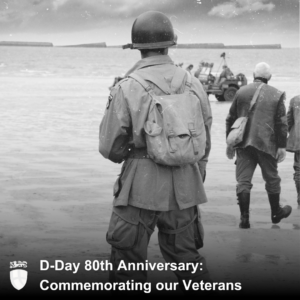
Dive deeper into the history of D-Day as we mark its 80th anniversary. Learn about the intricate plans, the fierce battles, and the enduring impact of June 6, 1944, on Europe and the world. Click to read more about the events that led to the liberation of Western Europe and how they are remembered today.”
These elements are crafted to engage readers by highlighting key aspects of the content, leveraging relevant keywords, and encouraging further reading with an inviting call to action.
Table of Contents
- Introduction
- Historical Context of D-Day
- Preparation for D-Day
- Allied Forces Involved
- D-Day: Operation Overlord
- Challenges and Strategies
- The Battle of Normandy
- Statistics
- Impact and Outcome
- The Liberation of Europe
- The Role of Specialised Units
- Commemorating D-Day: Remembering Those Who Served
- 80th Anniversary Commemorations
- Conclusion
Introduction
On 6 June 1944, the beaches of Normandy, France, witnessed one of the most momentous military operations of the 20th century—D-Day. This ambitious operation marked the turning point in World War II and set the stage for the liberation of Western Europe from Nazi control. As we commemorate the 80th anniversary of D-Day, we reflect on the scale, impact, and enduring significance of that day, paying homage to the courage of those who fought and those who fell.
Historical Context of D-Day
Preparation for D-Day
Operation Bodyguard was the masterful deception strategy crafted to mislead the German forces about the time and place of the Allied invasion. Central to this was General Dwight D. Eisenhower, who led the operation with a combination of meticulous planning and bold decision-making.
Allied Forces Involved
The Allied Expeditionary Force was a formidable coalition comprising American, British, Canadian, and troops from various occupied countries. They united under a common cause: to breach Hitler’s Fortress Europe and pave the way for peace.
D-Day: Operation Overlord
Operation Overlord was more than just a military assault; it was a beacon of hope for oppressed nations. The operation included the seaborne invasion known as Operation Neptune, where troops landed across five strategic beaches—UTAH, OMAHA, GOLD, JUNO, and SWORD.
Challenges and Strategies
The initial landings were met with fierce resistance and unexpected challenges. Adverse weather conditions, strong German fortifications, and logistical setbacks tested the Allied forces’ resolve. Despite these hurdles, through sheer perseverance and tactical ingenuity, the Allies established a crucial foothold.
The Battle of Normandy
In the days that followed, the Battle of Normandy saw some of the most brutal fighting of the war. The Allies pushed forward through dense hedgerows and defended towns, gradually overpowering German forces.
Statistics
More than 156,000 troops fought on D-Day, and the subsequent Battle of Normandy claimed the lives of over 425,000 Allied and German troops, underscoring the operation’s scale and ferocity.
Impact and Outcome
The Liberation of Europe
The success of D-Day was the beginning of the end for Nazi Germany. The liberation of Paris followed, and eventually, Allied forces pressed onward to Berlin, culminating in the unconditional surrender of German forces in May 1945.
The Role of Specialised Units
The Queen Alexandra’s Royal Army Nursing Corps played a pivotal role, providing crucial medical care under harrowing conditions, highlighting the diverse contributions that supported combat operations.
Commemorating D-Day: Remembering Those Who Served
The valor and sacrifice of those who served continue to be remembered through stories of individual and collective heroism. Annual ceremonies at the British Normandy Memorial, including visits by royalty, serve as poignant reminders of the cost of freedom.
80th Anniversary Commemorations
The 80th anniversary of D-Day is marked by a series of events, including a spectacular drone show and re-enactments such as the Sword Beach flyover and the recreation of the historic parachute jump by British paratroopers. These acts of remembrance reinforce the bond between past and present, ensuring that the lessons and legacies of D-Day endure.
Conclusion
As we reflect on D-Day 80 years later, we are reminded of the profound impact of that day on the course of history and the importance of remembrance. By educating new generations and commemorating the sacrifices made, we honour those who gave so much to restore peace and freedom to Europe.
Explore Hattons of London’s Exclusive 2024 D-Day 80th Anniversary Gold Sovereign Range, All coins purchased from the 2024 D-Day 80th Anniversary Gold Sovereign Series will support SSAFA, the Armed Forces Charity.
The Soldiers’, Sailors’, Airmen and Families Association, known as SSAFA, the Armed Forces charity, provides support for our Forces and their families in their time of need. 10% of all net profits from this range and other military ranges will be paid in support of SSAFA.






